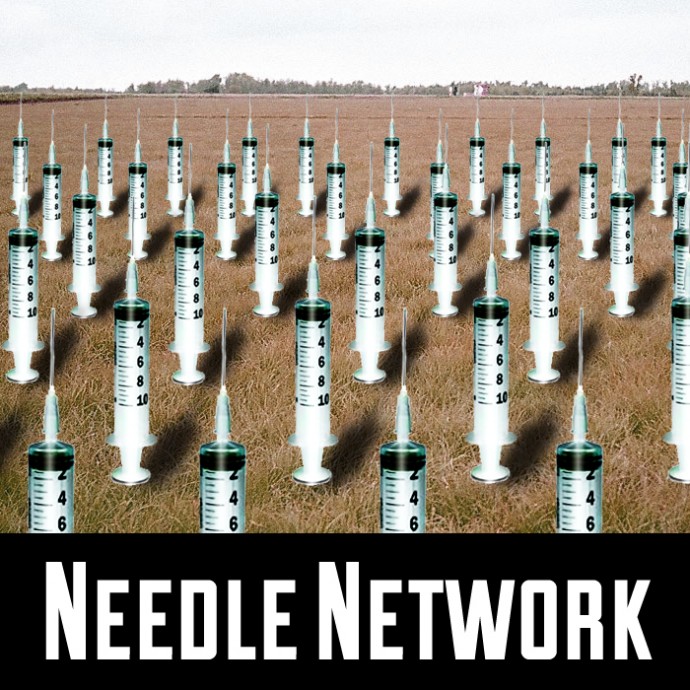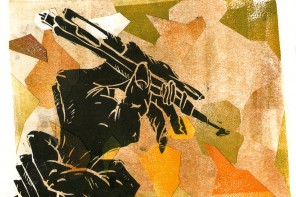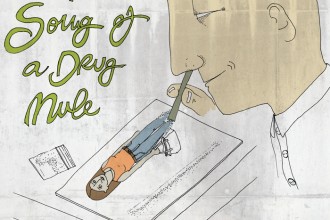International intravenous drugs use and diseases spread by infected needles have been dramatically slashed by government subsidized needle exchange programs. The service allows anyone with a used needle to exchange it for a sterile one. Indonesia, Germany, Netherlands, and Russia have all implemented successful exchanges, which have sliced HIV infection rates and reduced the numbers of zombies shooting smack into blown-out spider limbs on the streets. Despite international data, the United States federal government has banned federal funding for needle exchanges. Many fear that gains made against AIDS, via state and local exchange initiatives, will erode as funding dries up. We tracked down a needle exchange volunteer in America’s AIDS capital, Washington D.C, to get the goods on how it really works. In her Fresno, CA drawl, she outlines the struggle and illuminates how exchanges create networks of support for society’s most vulnerable.
I grew up in northern California right when the crack crisis blew up in America’s face. George Bush One fumbled crack vials in the Oval Office on national television while US citizens seemingly en masse succumbed to crack’s vile addiction. The phenomenon fascinated me: burgeoning drug scenes, AIDS, and the matrix of social problems resulting drew me in. But I implicitly understood that to fully comprehend what was going on, I needed to place myself on the front line. I moved to Washington D.C. and found a needle exchange program leading the nation in innovative techniques to serve vulnerable clients.
It’s an adrenalin rush to work in close contact with people loaded on meth, screaming at the top of their lungs and picking fights. A client once walked into the exchange, issued a brutally-toned, although unintelligible, ultimatum for needles. He was asked to leave. An hour later he returned for a clean needle with a clean attitude. We do our best to maintain a safe, controlled space amidst the chaos of addict’s lives.
The majority of clients are extraordinarily polite to us. They’re grateful for the legitimate support, judgment-free culture, and relatively calm atmosphere. We implicitly communicate to them by the environment we cultivate that we recognize their humanity and are concerned for their safety. We want them to use clean needles from a public health standpoint, but we also care about them as real, tangible beings with legitimate needs. We build report with clients and they begin to trust us. Without trust, we’re just providing clean needles. With trust we are able to offer them so much more.
Needle exchanges are powerful first points of contact with individuals totally alienated from society. They live on the margins and have few options to legitimately reintegrate. Millions have come to the needle exchange looking for clean needles and end up, of their own volition, in rehabilitation programs that change their lives. We act as a social funnel, feeding people back into healthful environments. But even if we aren’t able to guide them into rehab, users are still less likely to contract HIV, Hepatitis C, and other deadly diseases when they’re using clean needles.
Larger society benefits in many ways from this process: Baltimore’s needle exchange program was able to decrease the number of used needles in public spaces by a factor of 66%. We’ll never know how many barefoot children playing in parks were spared lifelong afflictions because careless users had no incentive to properly dispose their needles.
Perhaps the most dramatic impact of our exchange was in service to the sex worker community. The sex trade is thriving in D.C., and although ironically strictly illegal, the nation’s capital boasts prostitutes of every sex, gender and variety. Congressmen don’t have far to direct their security detail for a meth-fueled night of twisted, latex transgender bliss. Many sex workers are users – if you had to fuck a slew of pathetic men with champagne half-erections, wouldn’t you need to stick a needle in your arm to get through the night? We found there were so many sex workers exchanging needles that we began providing auxiliary services like condom distribution and education programs. As sex workers built trust with us, and word spread, they began confiding abuse to exchange workers. Women were being beaten, mutilated, and raped by customers AND cops. The cops were the worst: Fuck me or go to jail. Suck me off or go to jail. Apparently America’s boys in blue are especially fond of raping transgendered sex workers. Customers work in tandem with cops to charge sex workers’ lives with fear. Customers brutalize sex workers, and when sex workers turn to the cops they receive the same treatment. There were so many sex workers suffering that we began compiling profiles of customers and cops who were threats. We published the profiles in pamphlets and distributed to clients. The result is an organization where the most marginalized members of society are able to develop trust and live safer, healthier lives.
We all know politics in the US is an empire-fuck of vulgar proportions, but when politicians cater to the prejudice of people who don’t want their god-earned tax dollars going to ‘those’ people, we are casting huge swaths of humans into descendent despair. International evidence is conclusive: Needle exchanges lead users into rehab, millions are spared deadly diseases, children stumble on less infected needles, and the vulnerable are provided unique services no one else can. The dirtiest shit I encounter at the exchange aren’t the needles, but rather the cops, sex-worker customers and politicians who refuse to cease brutalizing fellow human beings with arcane notions of who is worthy of basic dignity, and who is not.







